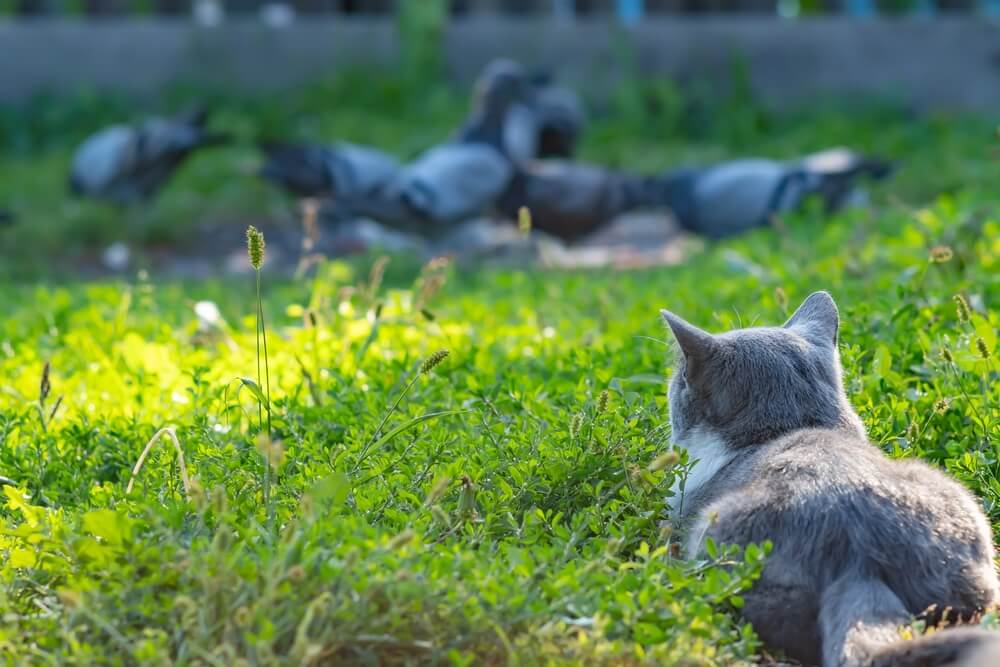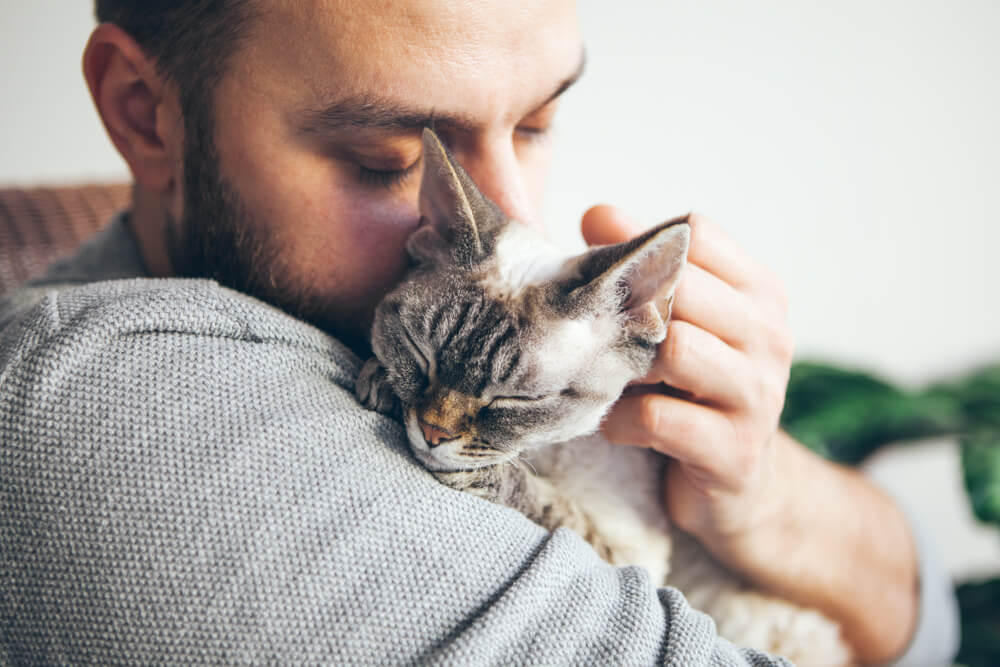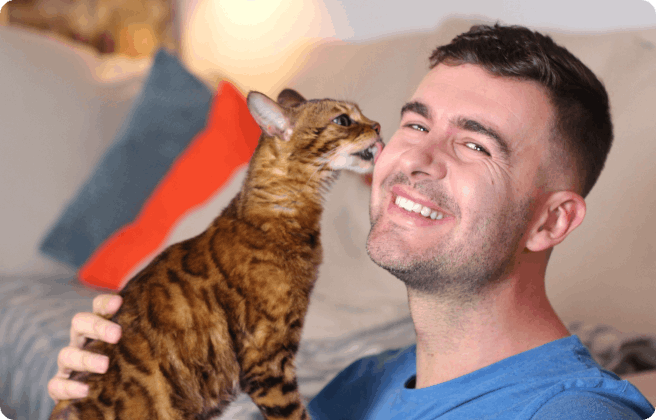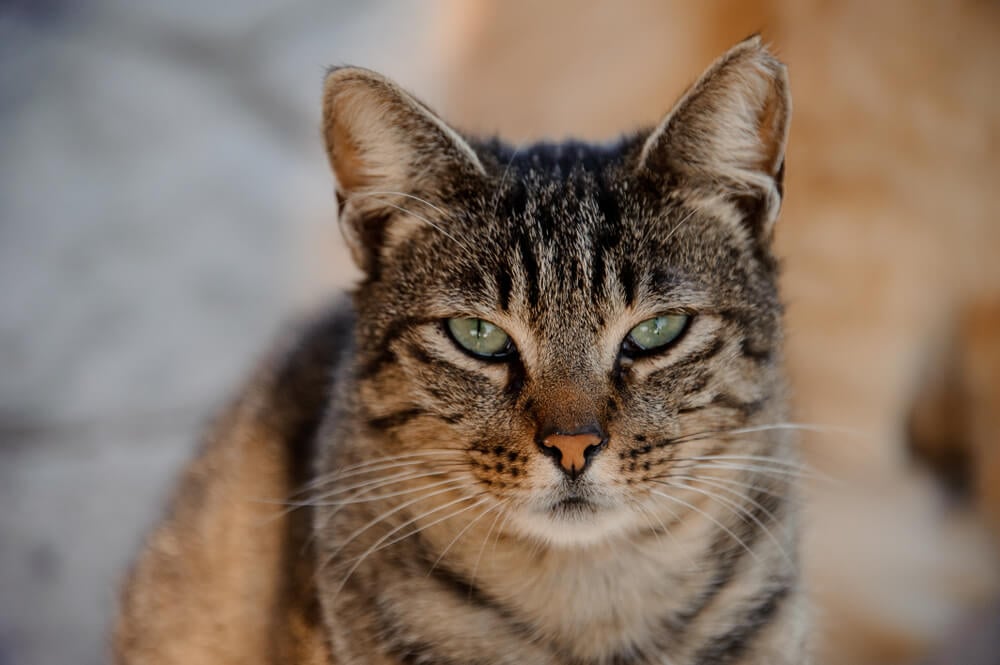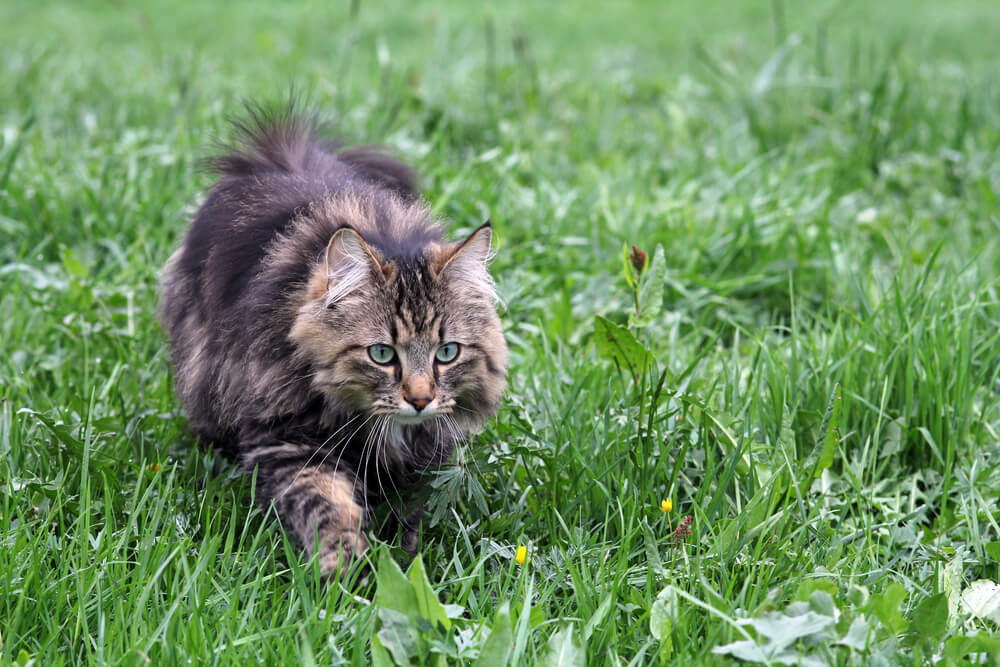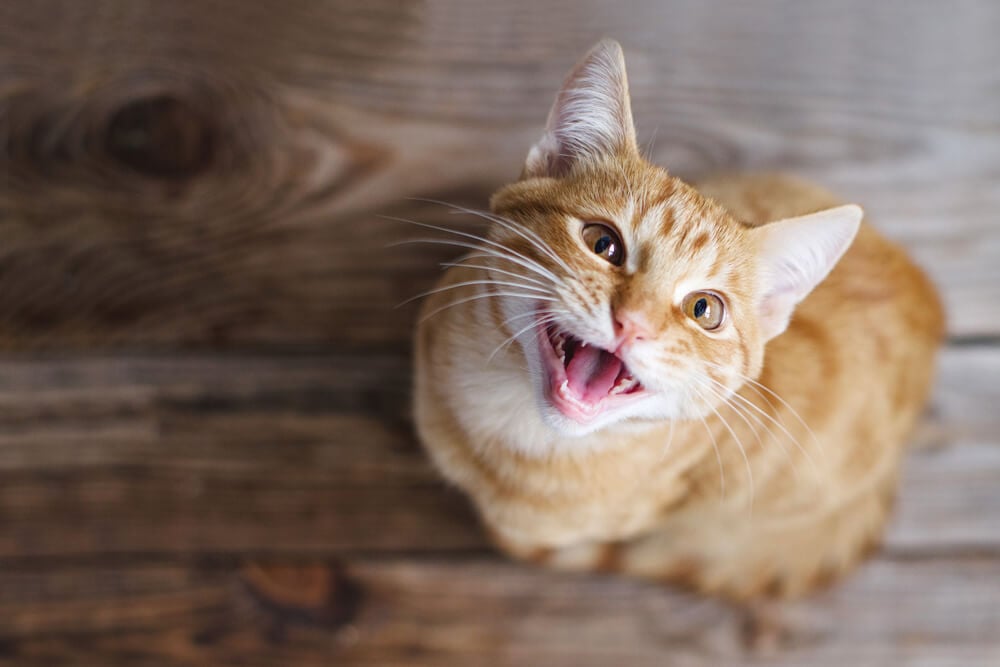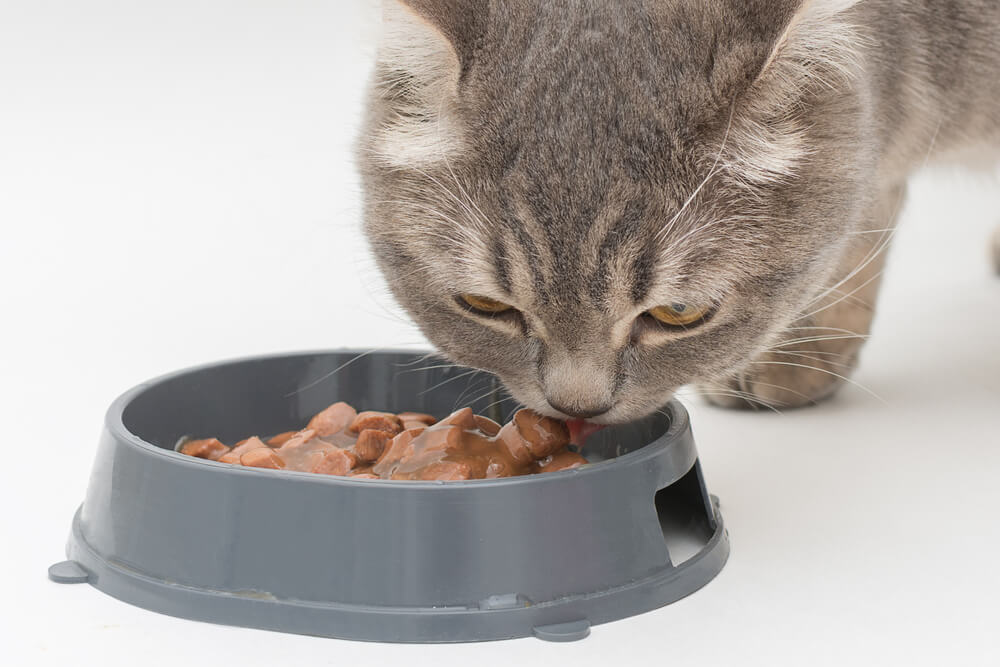
There’s no disputing that cats like food. Whether it’s dry, raw, wet, snack-based or the food on our plates, most cats would snack all day long if given the opportunity.
So restricting your cat’s diet to a set number of regular meal times is not always easy. Even more so if your hungry cat hoovers their breakfast up in seconds, leaving you wondering just how many meals a day are enough, and how long you should wait before serving your cat dinner. It’s a fine line between under-feeding your cat and over-feeding, so how do you know how long cats should go between meals?
To help cat parents out, we have some general advice on feeding your cat, including how many times a day, and how long to leave between serving meals.
Cats like routine
‘Creature of habit’ describes a cat in a nutshell. Doing things at the same time, day after day, provides your cat with a feeling of comfort and safety. If the world changes around them, whether it’s a house move or new arrivals, they always know that they’ll get breakfast and dinner at the same time every single day.
Over time, your cat’s body adjusts to this schedule, and knows when food is due, so is primed and ready.
In terms of how many times a day you should feed your cat, it depends on a number of factors, including age and levels of activity. But how long should you wait between your cat’s mealtimes?
What gap should you allow between your cat’s mealtimes?
A cat’s stomach takes 8-10 hours to empty once full. Where appropriate, the general advice is a cat should have at minimum two meals a day (breakfast and dinner). Each of these meals will be around 12 hours apart. Just like humans, their stomach will start grumbling around this time, so a meal after 8-12 hours will satisfy their hunger and keep them full until the next meal.
As natural-born hunters, cats in the wild are also more active at dawn and dusk, when their prey is particularly active. Mimicking this schedule is useful in terms of their stomach being most empty at these times.
Of course, if you decide to feed your cat smaller meals more often throughout the day, that’s good too — especially if your cat is more of a grazer.
Is two meals a day enough for my cat?
Ensuring you give your cat the optimum amount of food is important for a range of reasons.
Most importantly, you don’t want to give too much food in case they become overweight. Maintaining a healthy body weight is crucial to your cat’s good health — if your cat is on the heavier side, it can result in health complications such as arthritis and joint problems, and even diabetes.
But it’s not always easy to tell if your cat’s overweight — one way to determine if they are putting on weight is to feel around their ribcage – if it’s not easy to discern their rib bones, they might be a little overweight. Equally, if their ribs and shoulder bones are too prominent, they might be underweight.
If you’re at all worried about your cat’s weight, it’s worth visiting your vet to get your cat properly weighed and expert advice from your vet or veterinary nurse.
There’s no simple way to tell how much food is right for your cat. To an extent, it can be guided by their body weight and age.
Cats at different life stages require different amounts of calories during that timeframe, due to various reasons including changes in their metabolism and levels of activity.
Cats based outdoors rather than indoors also burn more calories during the day as they roam the local area, jumping over fences and chasing prey through gardens.
Your cat’s breed also has an effect on the amount of food they require — larger breeds will require more food than smaller breeds. Neutered cats also might require less food due to the fact that their metabolism is lower.
We uphold the highest editorial standards when creating the authoritative content pet parents rely on and trust.
Every piece of clinical content on the Cat Food Advisor is reviewed by our certified Veterinary Advisory Board, which consists of licensed veterinarians and medically certified specialists.
Our reviews are completely independent; we are not paid by any pet food company to promote their products favorably. We do not accept money, gifts, samples or other incentives in exchange for special consideration. For more information see our Disclaimer & Disclosure page.




